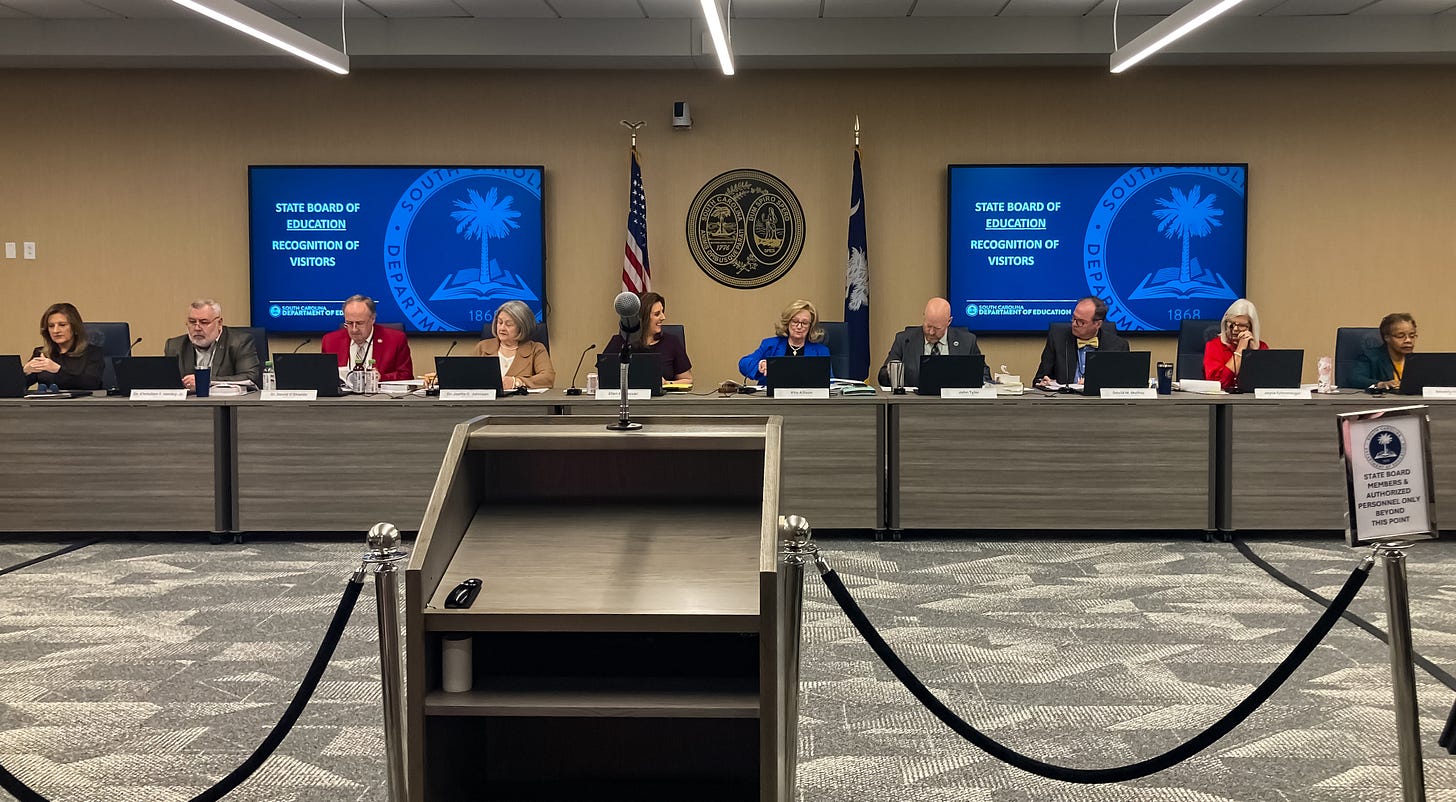This post is free thanks to the support of ProTruth South Carolina. (You can sign up to learn more about ProTruth, and find ways to get involved, here.)
The room was relatively packed today at the South Carolina State Board of Education’s monthly full board meeting. Because over ten people had signed up to speak, Chair Rita Allison moved to limit the normal five-minute public comment allotment to two minutes per person.

Testimony was weighted heavily in favor of retaining some or all of the books challenged.
The majority of speakers were passionately opposed to the removal of the four books on the chopping block: Mike Curato’s Flamer, George M. Johnson’s All Boys Aren’t Blue, Stephen Chbosky’s The Perk of Being a Wallflower, and Push, by Sapphire.
A student from a local high school argued that All Boys Aren’t Blue represented the lived experiences of many queer students, students of color, and victims of sexual assault, saying author George M. Johnson had written the book in the hopes that queer young people could recognize and therefore escape sexual assault.
Appleseed Justice Center Education Policy Attorney Jennifer Rainville argued that the book Flamer did not violate the regulation used to remove books in South Carolina, based on the standard created by the Board, itself, when it opted not to ban the novel 1984.
Banned Book: Flamer
Mike Curato’s award-winning graphic novel Flamer is included on a list of books banned from every public school in Greenville, South Carolina.
Jessicka Spearman, a counselor who works with victims of sexual trauma, told the Board that trauma victims needed to feel seen, and that removing books like the ones challenged today would make that more difficult.
Mary Foster, of Beaufort’s Families Against Book Bans (FABB), pointed out that the books had been vetted already, using a “democratic process,” when the complainant challenged them, along with over ninety other books. Now, Foster said, one person was being allowed to override the work that a team of teachers, parents, and librarians had already completed.
The Board voted to ban the books.
All four books were ultimately banned, but whereas in previous meetings the full Board has simply voted to accept the recommendations of the Instructional Materials Review Committee, this time there was some dissension in the ranks. Board member and former Chair David O’Shields, a current district superintendent, voted against removing every challenged book except Push, while Board member Beverly Frierson, a retired educator, voted against all of the removals.
At least one other member, who is not on the Review Committee, objected to the process in general, saying he had received many emails complaining about the removals, and saying people don’t want to be told what to do (presumably when it comes to selecting books and/ or choosing books for their children).





Is there any process for collecting the banned books that are removed by school librarians, and placing them in free little libraries?
Thanks for the update, Steve.
In addition to the infringement on free speech, these removals are problematic because one entity (the state) is depriving another entity (district/school/teacher) of property without compensation, almost like an eminent domain situation. Have you heard of anybody lodging claims for financial compensation or replacement with another title against the state board in response to these removals?